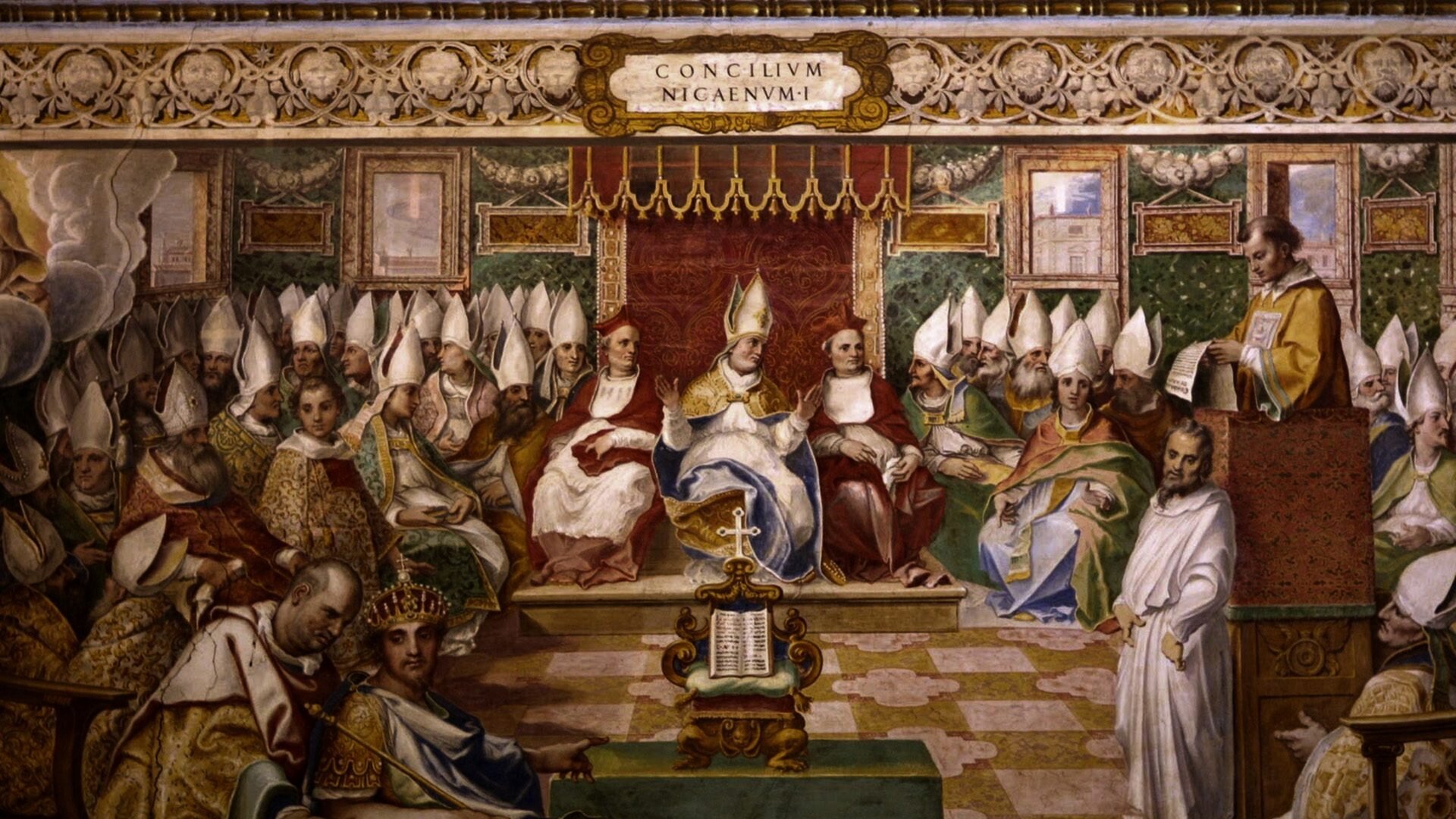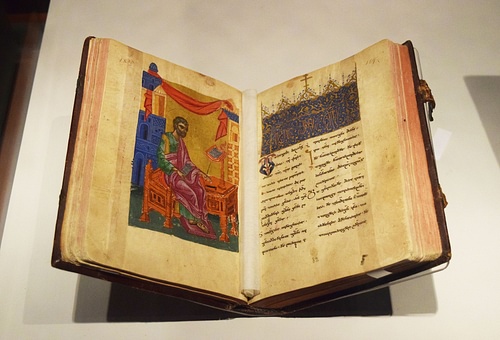Jesus as the “Son of God”: A Quranic and Historical Analysis
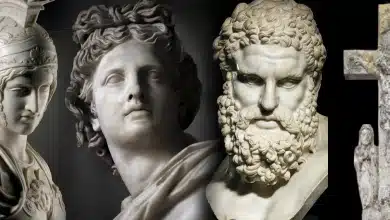
“If in this city you ask a shopkeeper for change, he will argue with you about whether the Son is begotten or unbegotten.”, wrote the theologian Gregory of Nyssa (335-395) at one of the most critical moments of Christianity. This church father was, it seems, very unhappy with the ideas embraced by many Christians about Jesus’ relationship with God; he also said:
If you inquire about the quality of bread, the baker will answer ‘The Father is greater, the Son is less.’ And if you ask the bath attendant to draw your bath, he will tell you that the Son was created ex nihilo
W. H. C. Frend, The Rise of Christianity
We read in the Nicene Symbol (325) that Jesus is the Son of God: “genitum, non factum”, i.e. “begotten, not created”. Some might think that this is a “theological” precision, but in reality, it’s such a serious word that the Quran describes it as follows:
The remainder of this article will go into more detail on this issue by visiting the following sections:
- What the Quran Says about the Link between Allah and Jesus.
- The word Son of God among the Jews means a being close to God and not a son in the literal sense of the term.
- That this idea of God “begetting” a son is a very common one among pagans.
- That Jesus never referred to himself as the son of God, not even in the figurative sense of the term.
Jesus, son of God? What the Quran says!
It is not [befitting] for Allah to take a son :
Attributing a child to God is not a Christian novelty; other nations have preceded them in the same abomination:
A miracle not mentioned in the Gospels: Jesus spoke at birth, and his first word was: I am the servant of Allah :
Those who attribute a child to God know nothing about it :
If God wanted to take a child, he would have chosen a child from among his creatures, but he is glorified for this; he has neither begotten nor adopted a child :
Adam’s creation is more miraculous than Jesus’, yet Adam is not the son of God :
Isn’t God capable of having a son?
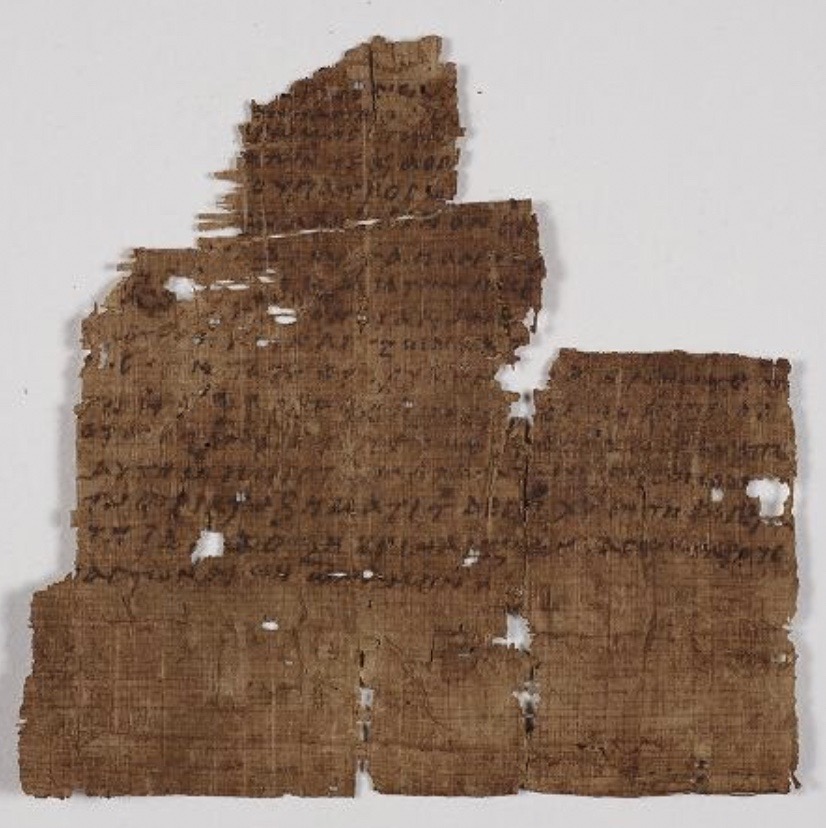
Can’t God do everything? Would God be incapable of having a child? He who is all-powerful! That’s how some Christians will argue. Their argument has a logical bias: believing that God will do all things, even things that are unworthy of God’s status.
Procreation is a property that exists in men and beasts, God gave them this property so that they could perpetuate their descendants, But it is unworthy for god, who is eternal and unchanging, to have a child, to associate a child with him is therefore, a blasphemy against his majesty, Lawrence Brown details this position in his book “Misgoded” :
With no rational explanation available within the tenets of Christian doctrine, the only avenue for closure is to claim yet one more doctrinal mystery. Here is where the Muslim recalls the question posed in the Qur’an, “How can He have a son when He has no consort?” (TMQ 6:101)—while others shout, “But God can do anything!” The Islamic position, however, is that God doesn’t do inappropriate things, only Godly things. In the Islamic viewpoint, God’s character is integral with His being and consistent with His majesty.
Lawrence Brown , Misgoded
This is confirmed by the Hadith KUdsi that we read reported by Bukhari:
Son of God is an honorary title
The Hebrew term “Son of”
The original manuscripts that make up the Bible were not in French; they were mainly in Koine Greek. Converting the complete or exact meaning is difficult when translating from one language to another without adding or subtracting something. The term “Son of God” had a different connotation when translated from Aramaic into Greek and English.
Comparez l’expression » fils de Dieu » aux exemples suivants :
- בֵּן חַיִל (bēn ḥǎ∙yil), literally means “son of strength” . It denotes a courageous soldier, i.e. an elite fighting soldier (2 Samuel 17:10).
- בֵּן בְּלִיַּעַל (bēn beliy∙yǎ∙ʿǎl), literally means ‘son of wickedness’ or ‘son of Satan’ and refers to a wicked or rebellious individual (Deuteronomy 13:14).
- עֳנִי בֵּן (ben oni), literally means ‘son of poverty’ and refers to an oppressed individual (Proverbs 31:5).
- מוּת בֵּן (ben maut), literally means “son of death” and refers to one condemned to death (Psalms 79:11).
- אָדָם בֵּן (ben adam) means ‘son of man’ designates a person of lower social class (Psalms 49:2).
The construction implies that the ‘son’ is somehow characterized or affiliated to the metaphorical father in all these cases. In the Jewish idiom, when applied to an individual, “son of God” means a person who is in some way characterized by or affiliated with God or godliness.
The term Son of God in the Old Testament
The term “Son of God” did not have a literal meaning. The term was used in ancient Hebrew to designate a pious, righteous person. It was customary to call any prophet of God, or a virtuous man, a son of God.
The title ‘son of God’ was of course entirely familiar to Jews in Jesus’ lifetime and indeed for centuries before: all Jews were sons of God; this was in fact what distinguished them from other people…
During the postexilic period in Jewish history the word was further applied to any particular pious man; ultimately it became common in reference to the Righteous Man and the Prince.
In all these cases of Jewish usage, the phrase was plainly a mere metaphor to emphasize a particularly close connection between individual virtue and divine authority.
Joël Carmichael Carmichael, Joel, M.A. 1962. The Death of Jesus. New York: The Macmillan Company. pp. 253–4
Other prophets of God and individuals in the Bible are called sons of God, such as orphans, judges, jurists, Israelites, and the prophets Adam, David, Solomon, and Jacob. It was typical for the Children of Israel to designate a righteous person as the son of God:
- Israël: « And thou shalt say unto Pharaoh, Thus saith the LORD, Israel is my son, even my firstborn. » Exodus 4:22
- David: « He shall build an house for my name, and I will stablish the throne of his kingdom for ever. I will be his father, and he shall be my son. If he commit iniquity, I will chasten him with the rod of men, and with the stripes of the children of men. » 2 Samuel 7:13-14
- Ephraïm: « They shall come with weeping, and with supplications will I lead them: I will cause them to walk by the rivers of waters in a straight way, wherein they shall not stumble: for I am a father to Israel, and Ephraim is my firstborn. » Jeremiah 31:9
- One of the good guys: « I will declare the decree: the LORD hath said unto me, Thou art my Son; this day have I begotten thee.» Psalms 2:7
- Melchizedek the Priest « Without father, without mother, without descent, having neither beginning of days, nor end of life; but made like unto the Son of God; abideth a priest continually. » Hebrew 7:3
- ….and also entire peoples.. « Ye are the children of the LORD your God » Deutéronome 14:1
- « I have said, Ye are gods; and all of you are children of the most High.. » Psaumes 82:6
It was thus customary for certain Jews to claim to be the sons of God, an honorary title they gave themselves and which is mentioned in the Quran:
The term son of God in the New Testament
The New Testament is no exception:
- We read in Mark 15:39: The centurion, who was in front of Jesus, seeing that he had expired in this way, said, Surely this man was the Son of God. In Luke 23:47, the phrase was different: The centurion, seeing what had happened, glorified God and said, Surely this man was righteous.
- According to Matthew 5:9, Jesus would have said, “Blessed are the peacemakers: for they shall be called the children of God.” Later in Matthew 5:45, Jesus would have enjoined his disciples to attain the noble attributes “That ye may be the children of your Father which is in heaven” Not exclusively his Father, but their Father.
- “Be perfect, therefore, as your heavenly Father is perfect” Matthew 5:48
- Furthermore, John 1:12 quotes, “But to those who received him, to those who believe in his name, he gave the power to become children of God.” If we hold to the Bible, any godly person could aspire to the position of “son of God.”
- Some say Jesus was the son of God because he called God “Father.Father.” But what do other people call God? In this regard, what is Jesus recorded as having taught in the Bible, if not, “You therefore, pray thus: Our Father ….” (Matt. 6:9)? So not only would Jesus have taught that anyone could attain the title of “son of God,” he would also have taught his disciples to identify God as “Father.”
The term “Son of God” should, therefore, not be taken literally, as Christians have done. In the Gospels, Jesus Christ never claimed to be the Son of God in the physical sense of the term.
In addition, the New Testament Greek words translated as “son” are “pias” and “paida”, meaning “servant” or “son in the sense of servant”. In some translations of the Bible, these words are translated as “son” about Jesus and “servant” about everyone else. So, in line with the other verses, Jesus said he was God’s servant.
How pagan influence transformed Jesus Christ into a begotten, uncreated son of God
Christians of Greek or Roman origin then misused the term. In their heritage, “son of God” meant an incarnation of a god or someone born of a physical union between male and female gods. We can see this in Acts 14:11-13, where we read that when Paul and Barnabas preached in a city in Turkey, the pagans claimed they were incarnate gods. They called Barnabas the Roman god Zeus and Paul the Roman god Hermes. In his book “God Against The Gods,” Jhonatan-Kirsh confirms that this idea of God begetting a son was foreign to Judaism but entirely plausible among the pagans:
Of course, the Christian belief that God fathered a son by causing a woman to conceive was a notion that other monotheists – the Jews – found alien and offensive.
According to Jewish theology, God could endow a man or woman with the power of prophecy, or appoint a king or conqueror to perform marvelous feats as the Messiah or “anointed one”, but he simply didn’t beget children, whether mortal or divine.
Ironically, the same idea was perfectly plausible for the pagans whom Christians sought to convert to monotheism. Indeed, it was a commonplace in the myths and legends of paganism – gods were both willing and able to impregnate mortal women, according to the pagan way of thinking, while mortal men were considered incapable of doing the same with a goddess.Thus, among countless examples, Alexander the Great was reputed to be the flesh-and-blood offspring of Zeus-Amon, who conveniently manifested himself in the form of a snake and had sexual intercourse with Alexander’s mother, much to the shock and distress of Alexander’s human father.
Jhonatan-Kirsh , God Against The Gods: The History of the War Between Monotheism and Polytheism
The Sons of the Gods are best known from ancient Greek mythology, although similar concepts can be found in world-renowned mythologies. In Greek mythology, Sons of the Gods were often legendary heroes or mythical kings from whom Greek monarchs claimed descent to legitimize their rule. Here are just a few examples of Sons of the Gods (for an exhaustive list):
| Greek mythology Aeacus (son of Zeus) Cycnus (son of Poseidon) Heracles (son of Zeus) Memnon (son of Eos) Hindu mythology Arjuna (son of Indra) Ashwathama (son of Rudra) Bhima (son of Vayu) Dhristyadyumna (son of Agni) Nordic mythology Sæmingr (son of Óðinn) Sleipnir (son of Loki) Polynesian mythology Māui (adopted) Roman mythology Achilles (son of Jupiter) | Mayan mythology Hunahpu (son of Xquic) Xbalanque (son of Xquic) Sumerian mythology Adapa (son of Ea) Gilgamesh (son of Ninsun) Amerindian mythology Nayenezgani (son of Tsohanoai, Navajo) Tobadzistsini (Son of Tsohanoai, Navajo) Irish mythology Cú Chulainn (son of Lugh) Diarmuid Ua Duibhne (son of Donn, adopted son of Aengus) Nia Segamain (son of Flidais) African mythology Moni-Mambu (son of Nzambi a Mpungu) Sudika-Mbambi and Kabundungulu (twin sons of the daughter of the Moon and the Sun). Ntikuma, Nankonhwea, Afudohwedohwe and Tikelenkelen (sons of Anansi) Imhotep (son of Thoth) Apis (son of Ptah) Petsuchos (son of Sobek) |
The Son of God between Christians of yesteryear and today
Jesus of Nazareth was an Israeli prophet who preached the imminence of the kingdom of God (the reign of the God of Israel on earth), which had been foretold in the books of the Jewish prophets. That’s how the first Christians saw it: in those days, the term “Christian” didn’t exist, and those who believed in Jesus’ prophecy were still considered Jews who observed the Torah and believed in the prophet who told them the good news of the Kingdom of AaLaH (for that’s what Jesus called God in Aramaic: AaLaH).
The first division came with Paul of Tarsus, who preached that Jesus was the son of God and wished to abolish the Law of Month. Several centuries later, Christians were already divided into several groups, each with its own beliefs about Jesus, but the most important groups in 325 were the Nicene and the Arians, who believed that Jesus was a creature of God and that there was a time when Jesus did not exist.
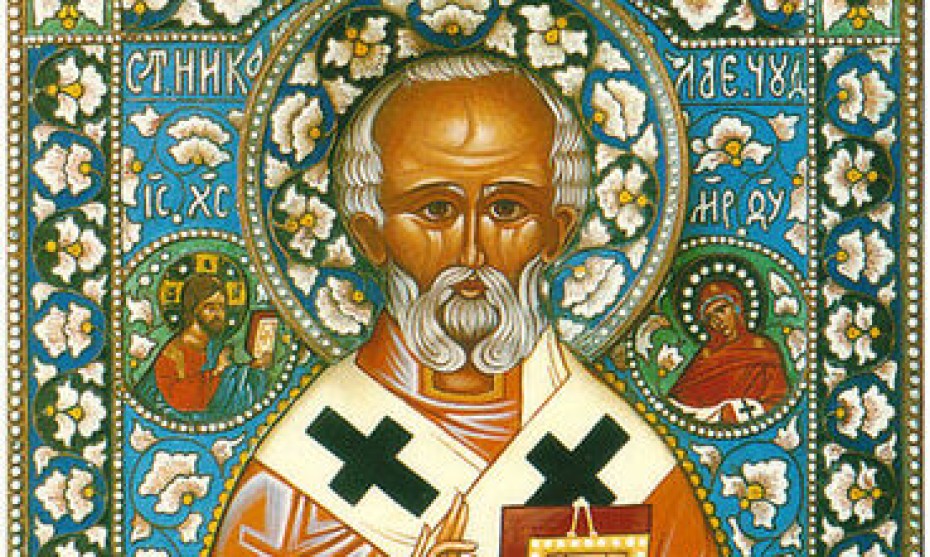
“Christian, What do you believe? Survey reveals that Christians are probably heretics about Jesus.” this is the title of An article in the Christian newspaper Christians Today published in 2018; Arius was condemned at the Council of Nicea in 325, then at the Council of Constantinople in 381. Yet the number of American evangelicals who share his view increased between 2016, when 71% agreed, and 23% disagreed, and in 2018 when 78% agreed, and 18% disagreed. :
Strangely, while most evangelicals strongly believe in justification by faith alone, they are confused about the person of Jesus Christ. On one hand, virtually all evangelicals express support for Trinitarian doctrine. Yet at the same time, most agree that Jesus is the first and greatest being created by God, which was a view espoused by the ancient heretic Arius.” 78% believe that “Jesus is the first and greatest being created by God.”
Ligonier Ministries
Did Jesus use the term “my father”?

The preceding chapters have demonstrated that these terms appearing in the Bible have only a parabolic meaning. Did he use the term “my father” to designate his Creator?
It is my ultimate conviction that Jesus never referred to himself as the Son of God, even in the parabolic sense. The authors of the Gospels, as well as Paul of Tarsus, believed that Jesus was the Son of God, and it is from this prism that they wrote their writings. Add to this the alterations made to the texts of the Gospels to reinforce the idea that Jesus proclaimed himself the Son of God.
Here’s an example from John 9:35:
« Jesus heard that they had cast him out; and when he had found him, he said unto him, Dost thou believe on the Son of God? He answered and said, Who is he, Lord, that I might believe on him? And Jesus said unto him, Thou hast both seen him, and it is he that talketh with thee. And he said, Lord, I believe. And he worshipped him» Jean 9.35 ( Louis Second)
Whether in the Louis Second, King James, or Darby Bible, we read the same thing: Jesus says: “Do you believe in the Son of God? However, this is a falsification:
- All early manuscripts before the 5th century uniformly have “son of man”, including the quotation from the church fathers of that time. A large number of later manuscripts also have the same reading.
- Most manuscripts from the 5th century onwards have “son of God”. This includes the Byzantine tradition (when most manuscripts were produced!).
For example, in the Codex Sinaiticus, a manuscript from around the 4th century, we read: “Do you believe in the Son of Man?” This is why, in the new versions of the Bible, the Son of God has been replaced by the Son of Man, as in the New International Version, New Living Translation, English Standard Version, Berean Study Bible, Berean Literal Bible….
In this regard Lawrence Brown states:
The real shock is that many of these non-biblical sources actually contradict the teachings of Jesus Christ. For example, nowhere in the foundational manuscripts of the New Testament does Jesus Christ refer to himself as a literal Son of God. He identifies himself as the Son of Man eighty-eight times, but not once as a Son of God in a literal, begotten and not made sense.
Lawrence Brown Misgoded

